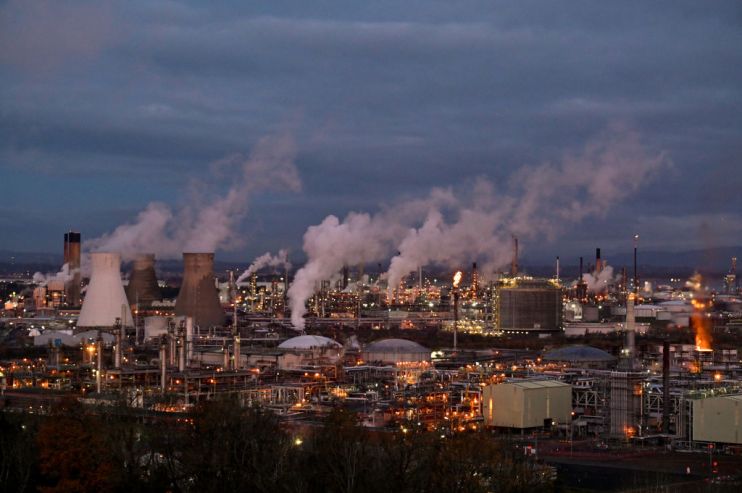Britain’s factories already in recession on ‘lethal cocktail’ of constraints

Britain’s factories are already in recession sparked by demand receding as the country’s economy slumps, a closely watched survey out today reveals.
S&P Global and the Chartered Institute of Procurement and Supply’s (CIPS) purchasing managers’ index (PMI) inched higher to 46.5 last month from 46.2 in October.
Despite the slight rise, the survey remained far below the 50 point threshold that separates growth and contraction, meaning the UK’s manufacturing has now shrunk for several months in a row.
Businesses are cutting spending on manufactured goods as they brace for a slowdown in consumer demand caused by inflation eroding real incomes at the quickest pace on record.
Firms typically rein in investment during recessions due to weaker spending squeezing returns.
Normally, policymakers would cut interest rates to stimulate business spending. However, the coming recession is being driven by elevated inflation, running at a 41 year high of 11.1 per cent, meaning the Bank of England is unlikely to loosen financial conditions any time soon.
“Demand for industrial goods likely will be hit again early next year as real incomes are squeezed by the watering down of government support for energy bills and higher unemployment, as businesses are forced to consolidate costs,” Gabriella Dickens, senior UK economist at consultancy Pantheon Macroeconomics, said.
The PMI also indicated factories are curbing hiring plans and may even be considering shedding workers to protect their finances.
Weaker new orders steered the steepest pace of job cuts in two years, the survey found.
Experts said trade friction triggered by Brexit has weighed on export activity in the manufacturing sector.
“A lethal cocktail of Brexit, logistics constraints, high costs and low demand contributed to the continued decline in manufacturing output in November which also fed into deteriorating job numbers for a second month in a row,” Dr John Glen, chief economist at the CIPS, said.
The PMI did signal the rate of increase in raw material costs is slowing signalling headline UK inflation could be on an downward path.
Britain’s factories are lagging behind their European counterparts. The eurozone final PMI climbed to 47.1 last month from 46.4.